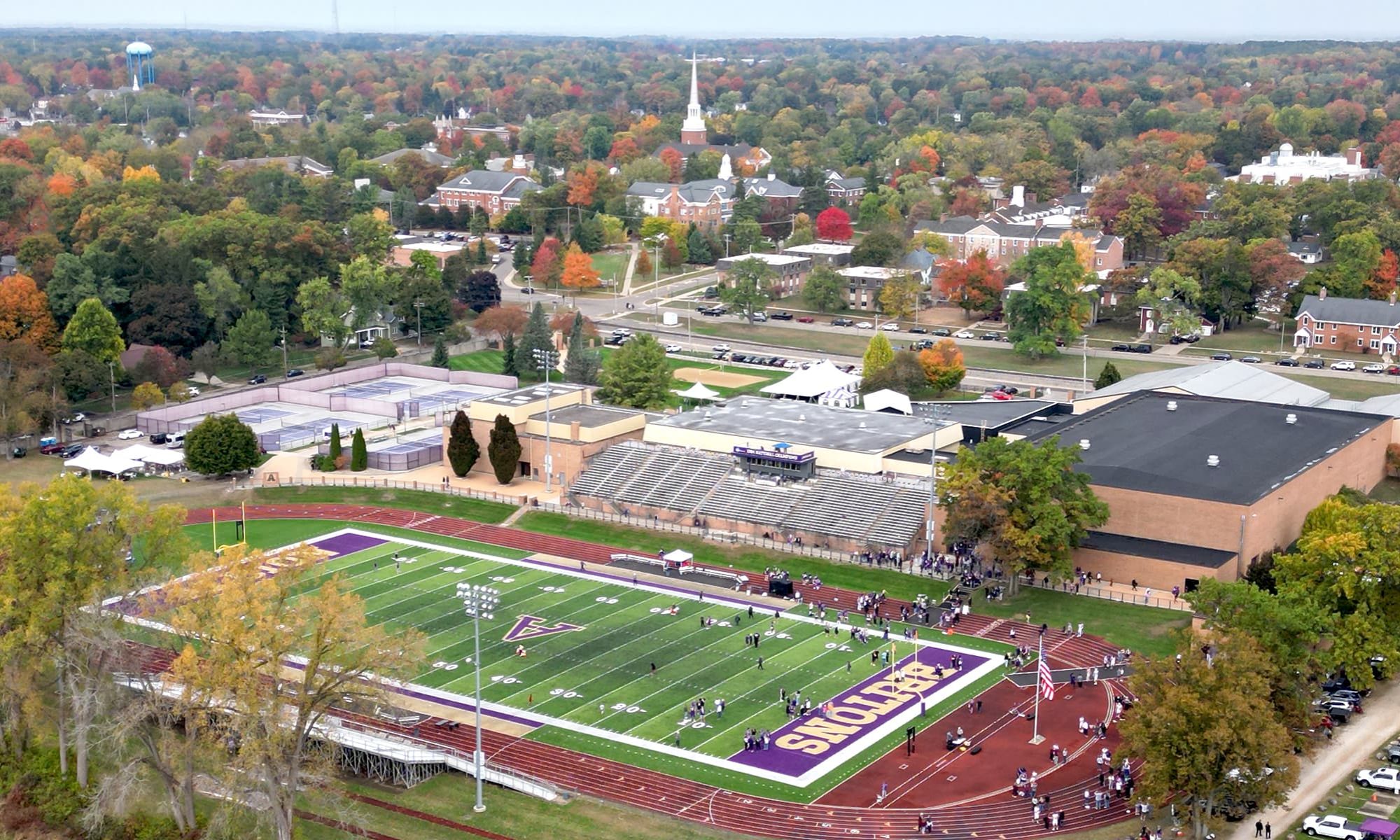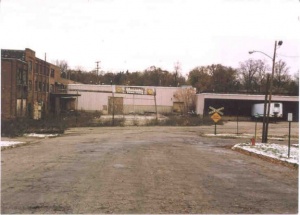
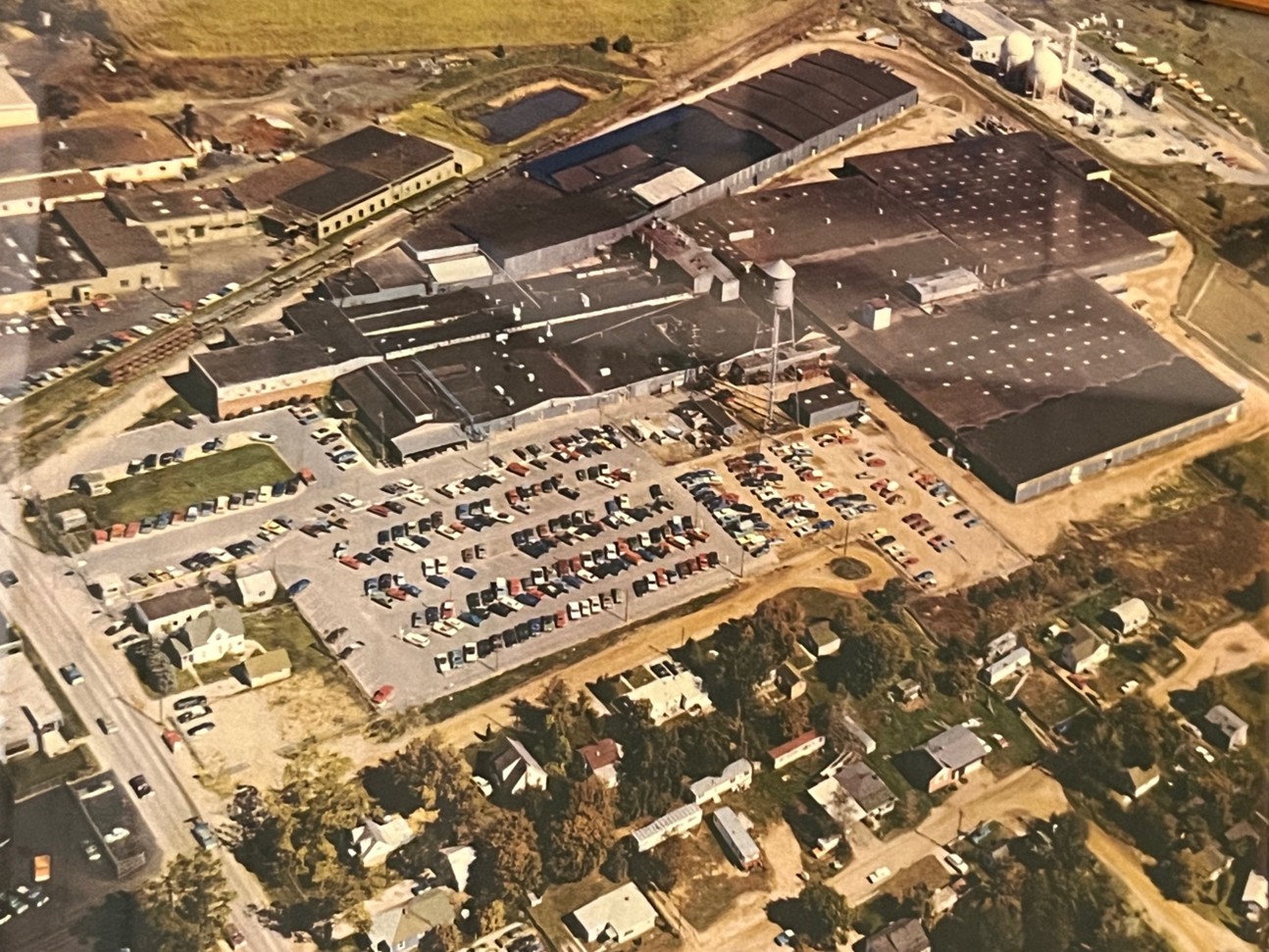
704 North Clark has been an industrial site in Albion for over 130 years, housing various manufacturers like T.C. Prouty, Lonergan, and McGraw-Edison, culminating in Challenger Communications. Read more to learn about the site’s long history and significance to Albion’s manufacturing scene.
Forging History: 130+ Years of Metalworking at 704 North Clark
By Bruce Nelson from Albion Life Today
October 6, 2025
In Albion’s bustling industrial days there were many legendary factories – Gale Manufacturing, Albion Malleable, Union Steel, Corning Glass Works, Service Castor, and others. One site in Albion is particularly noteworthy in that it has been continuously devoted to industry for over 130 years, and that is 704 North Clark.
In 1901, the T.C. Prouty Company, a successful quality hardware manufacturer operated a large factory on the site which they operated in Albion until 1912. T. C. Prouty took over the building which had been used by the Keenan and Hess Manufacturing Company which produced castings from gray iron and brass starting in 1894. There may have been an earlier Albion Brass Works on the site or that may have been a name referring to the brass foundry
Hayes Wheel Company, a maker of automobile hubcaps in Albion, took the site over from T.C. Prouty. At that time there were upwards of 25 car manufacturers in nearby Jackson building cars by hand. That ended as auto assembly lines in Detroit and Lansing began to produce cars for less than half the cost and the Hayes Wheel Company closed in November 1930.
Lonegran Manufacturing Company which made humidifiers, space heaters and similar items, took over the 704 North Clark site and started their company in 1937. They were acquired by McGraw Edison which manufactured similar equipment including air conditioners from the mid-1950s until it closed in 1980. Since 1996, the primary building of the McGraw-Edison complex as been the home of Patriot Antenna Systems and its successor Challenger Communications who also rents space to several additional businesses.
All of the industries that occupied this site were involved in some form of metal fabrication whether it be iron, brass, steel or aluminum. Most of Albion’s industries aside from the mills, were involved in transforming metals into usable products that found their way into the farms, houses, businesses and cars throughout the country.
The value of the location to the early foundries and manufacturers was its proximity to the Lake Shore & Michigan Southern Railroad tracks which run just north of property. Being just outside Albion on the east side of North Clark Street allowed it to be close enough to town for workers to walk to, yet just far enough away from the college and residential areas.
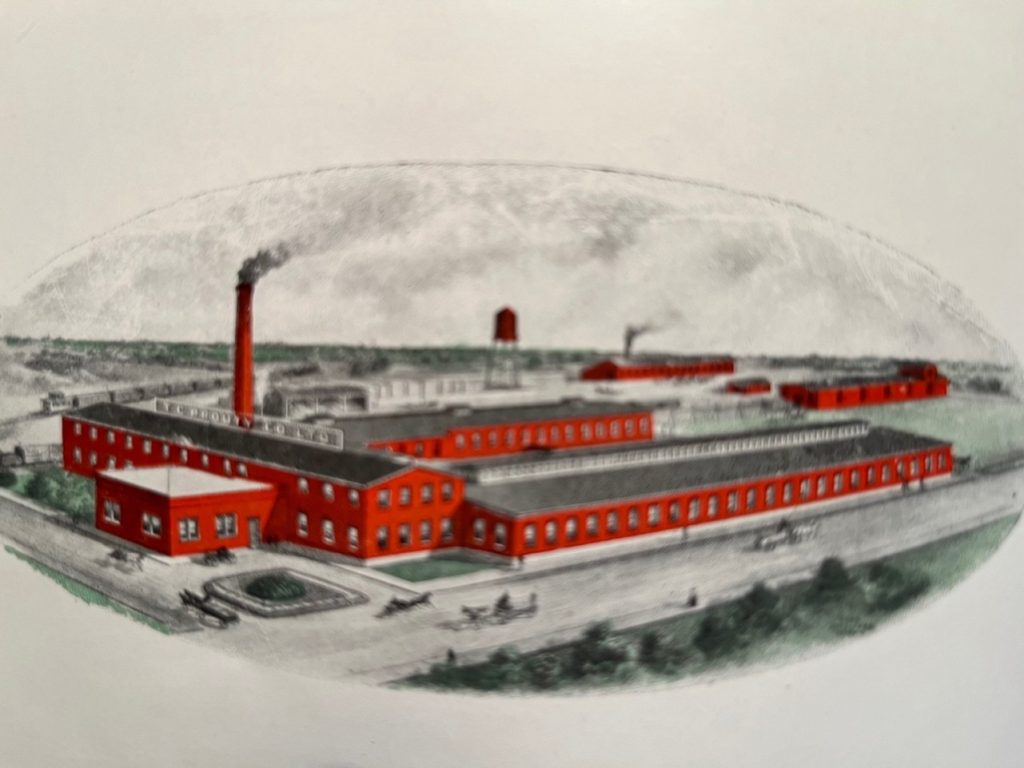
T.C. Prouty moved his company to Albion from Midland where had formed it eight years earlier. He was familiar with Albion, having been a student at Albion College. His father had been a pastor in the area. He was also given encouragement by community leaders who raised $55,000 to purchase company stock. With their main office and factory in Albion, they created a network of branch offices in New York, Boston, Chicago, St. Louis, Denver and San Francisco.
The T.C. Prouty Company product line included parlor door hangers, barn door hangers, fire door fixtures, hinges, locks, pipe wrenches and additional hardware. Their hasp locks, used to secure barns and sheds, were a particularly popular product. Their most elaborate creation appears to have been the Prouty “Cushion Track” parlor door hanger. As solid oak parlor doors constructed of old growth lumber can weigh up to 200 pounds, a sturdy piece of hardware is required to hold them quietly in place.
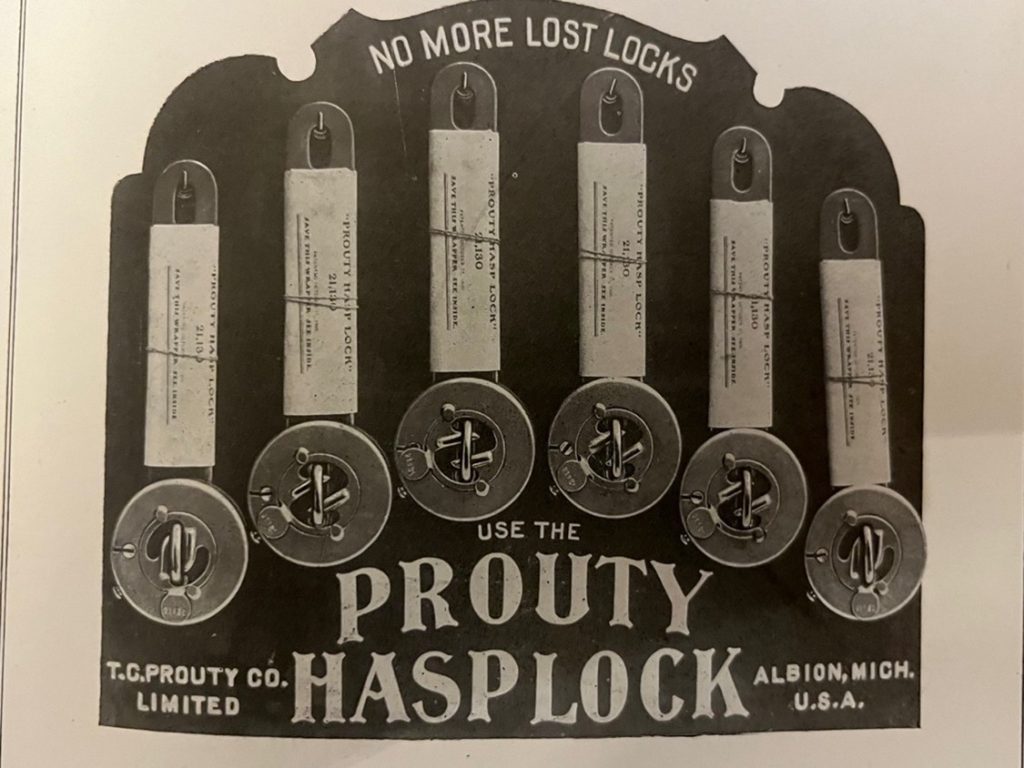
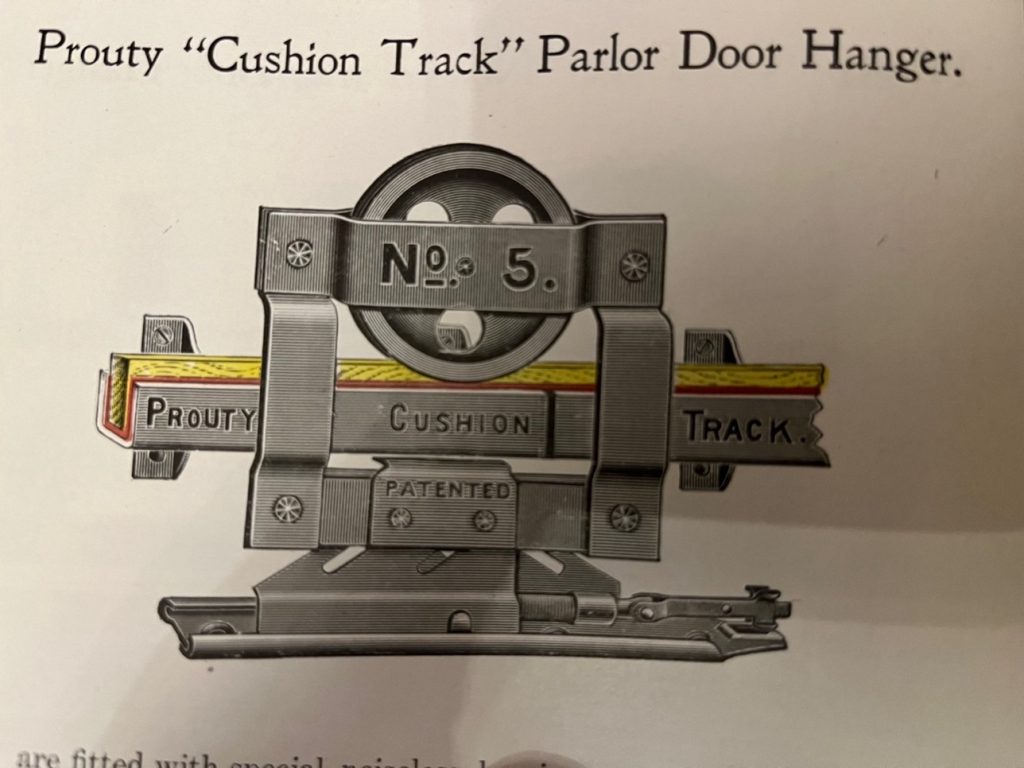
Lonergan Manufacturing Company moved to Albion in 1937 andproduced oil space heaters, water heaters, dehumidifiers and air conditioners. During World War II they made bomb inner-casing front and back ends from sheet metal for the Defense Department. There are said to be a few of these in Riverside Cemetery, repurposed as flower holders. The President of Lonergan reportedly had a spur from the nearby railroad routed into part of the building so that workers had protection from the elements when receiving raw materials or shipping finished product.
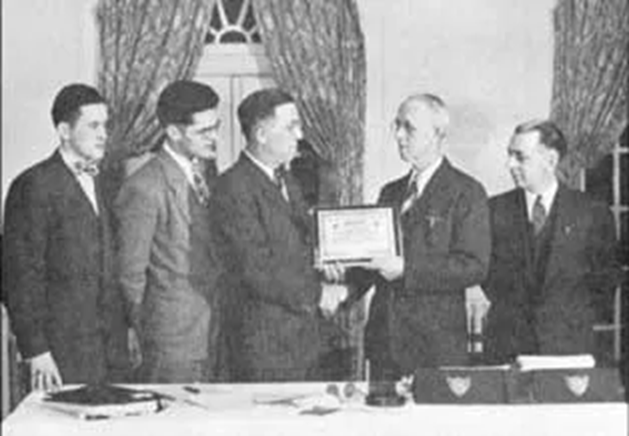
The company workers unionized in April, 1941and affiliated with the AFL Stove Mounters International Union. They soon had a new contract which they renegotiated the next year, to waive double pay for overtime to help with war production. Many of their workers as in other Albion factories served in the war as well.
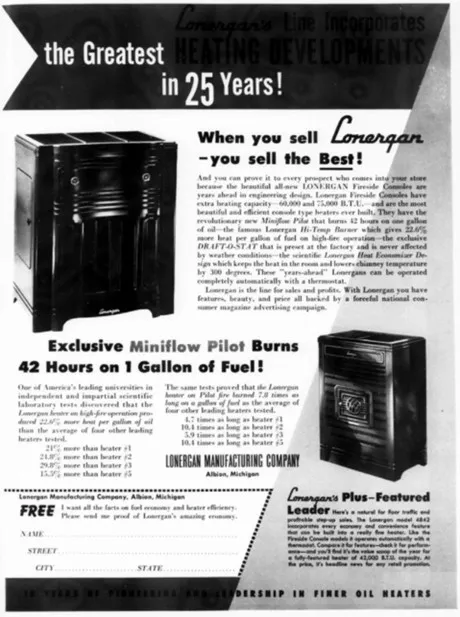
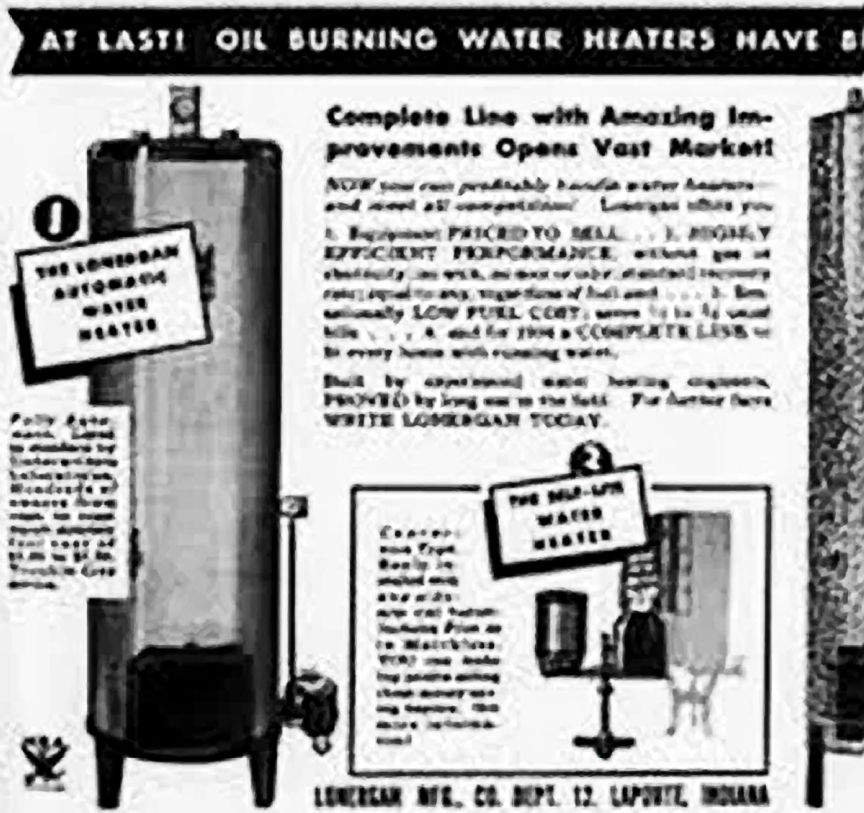
704 North Clark reached its zenith as an industrial site with the arrival of McGraw-Edison in 1956. Having absorbed Lonergan, they would build the factory site up to 600,000 square feet of enclosed space, continuing to make humidifiers and other small appliances.
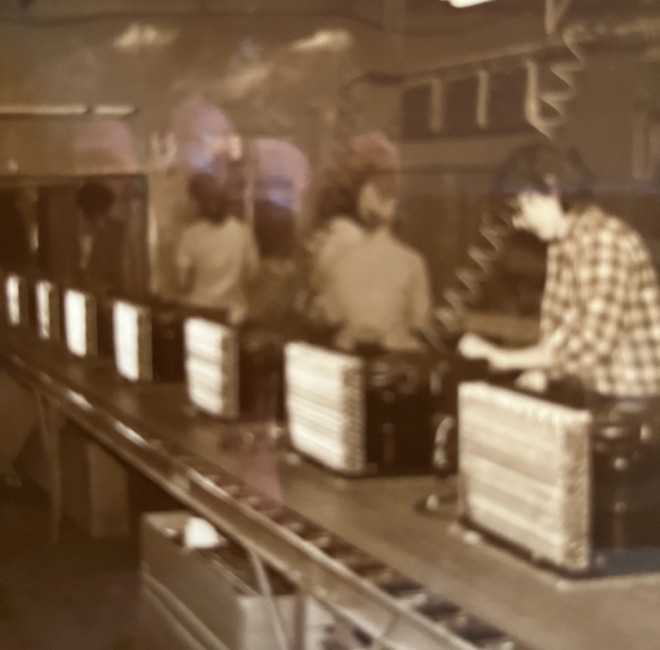
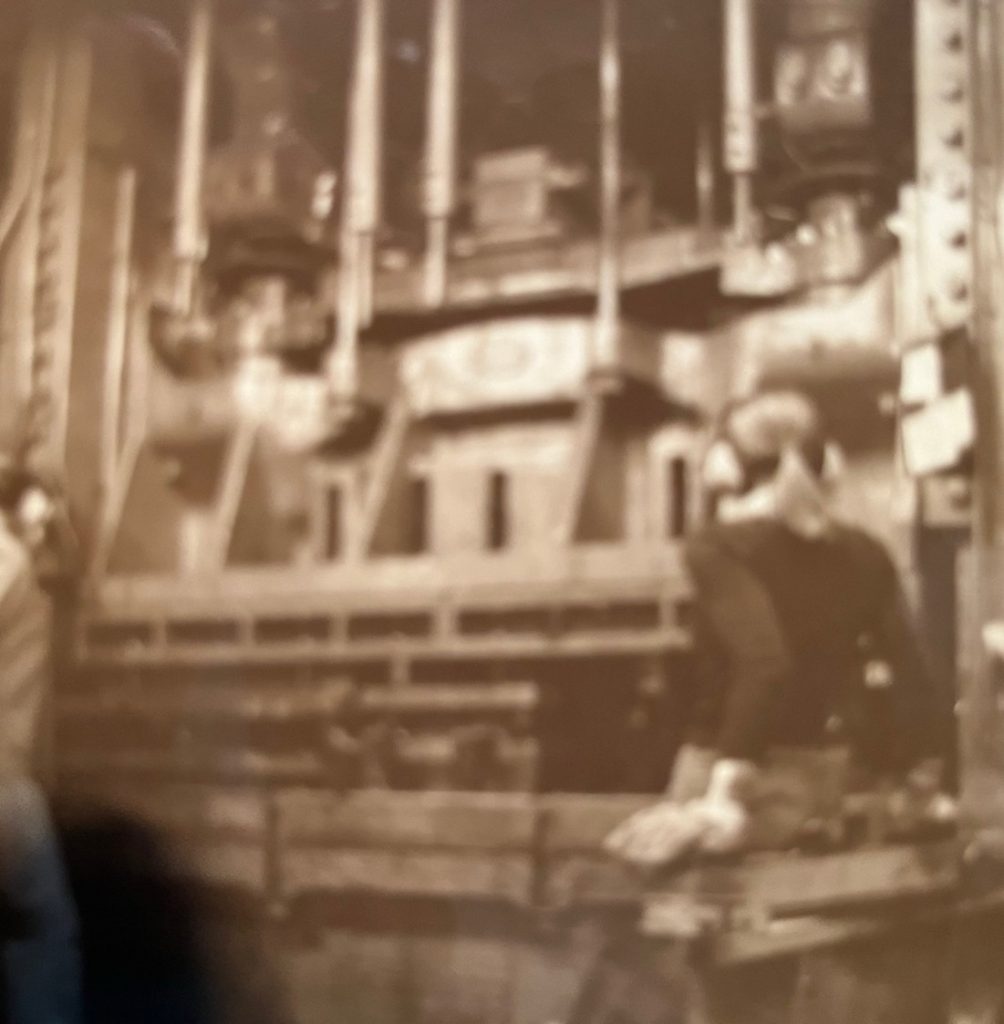
McGraw-Edison was a conglomerate based in Chicago. When it was acquired by Cooper Industries of Texas in 1985, they had 21,000 employees working in 118 facilities in the United States and other countries. The Albion site was formally called the “Air Comfort Division” and locally as the “Coolerator Division” for its best-known product line. “Your Comfort is Our Business,” one of their ads proclaimed, showing the plant and its “Over 600,000 square feet devoted exclusively to the production of room air conditioners, central air conditioning systems, humidifiers and dehumidifiers, electric, gas and oil heaters, and electronic air cleaners.”
The plant closed in 1980. Many residents of Albion had a chance to work there, either as full-time or summer employees. With its massive stamping press, assembly line and complete metalworking shop it was an impressive factory in its day.
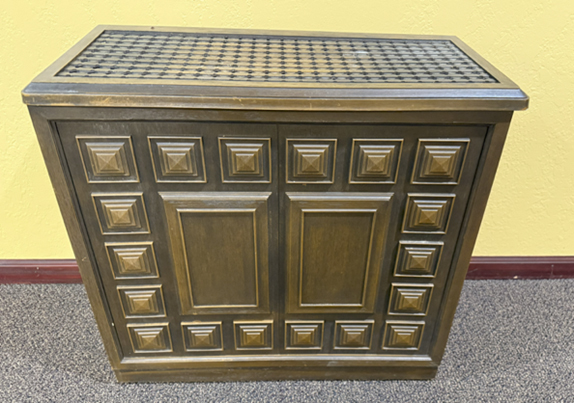
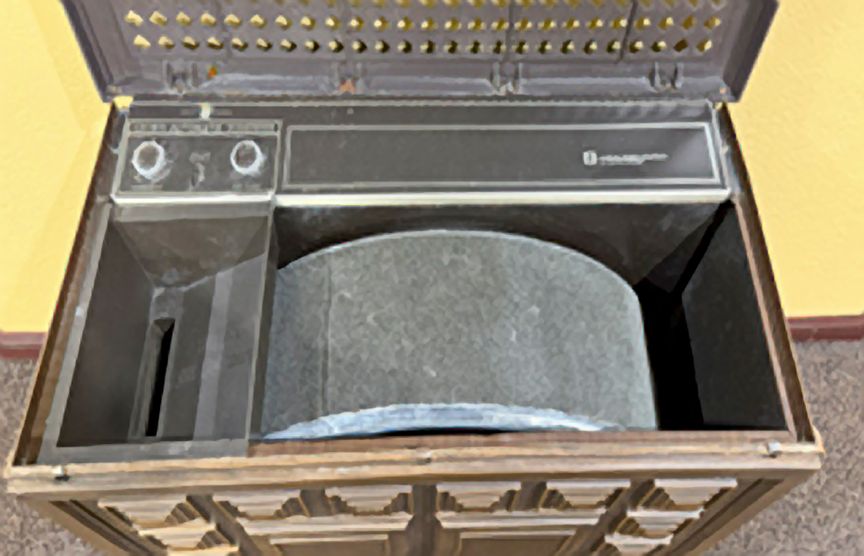
Unfortunately, in the 1970s the company spread about 15,000 gallons of oil waste on the dirt roads at the site to control dust. The waste contained trichloroethylene (TCE), a volatile organic compound and human-health concern. In 1980 TCE contamination was detected in two on-site water supply wells and in about 45 nearby residential wells. The property would eventually become a successful Superfund site. Remedial actions included installation of a groundwater recover and treatment system, and continual monitoring. It is considered safe for its current use as a manufacturing and warehousing facility.
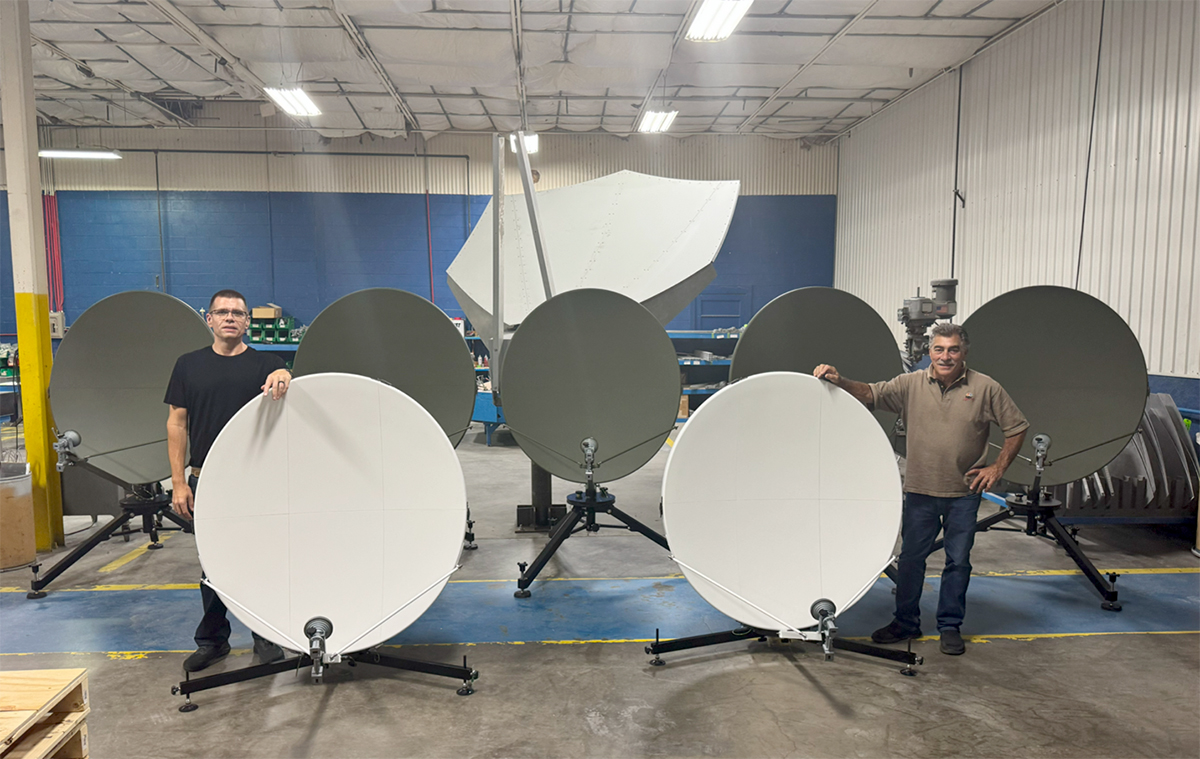
Following remediation, 704 North Clark next became the home of Patriot Antenna Systems from 1996 to 2007 which manufactured satellite dishes. Patriot was purchased by COBHAM SATCOM land systems which operated until 2010, followed by its current principal occupant, Challenger Communications founded by Gene Sorgi in 2011 who owns the 300,000sqft building that remains and the 24-acre parcel it sits on.
Challenger Communications makes satellite antenna systems and mounts. They build antennas ranging from one-meter quick deployment models to 12-meter earth stations. They also design and manufacture trailers for mobile satellite systems. Founder Gene Sorgi has manufactured and assembled 12-meter antennas around the world for customers such as NASA, the Jet Propulsion Laboratory (JPL), and the Commonwealth Scientific and Industrial Research Organization (CSIRO).
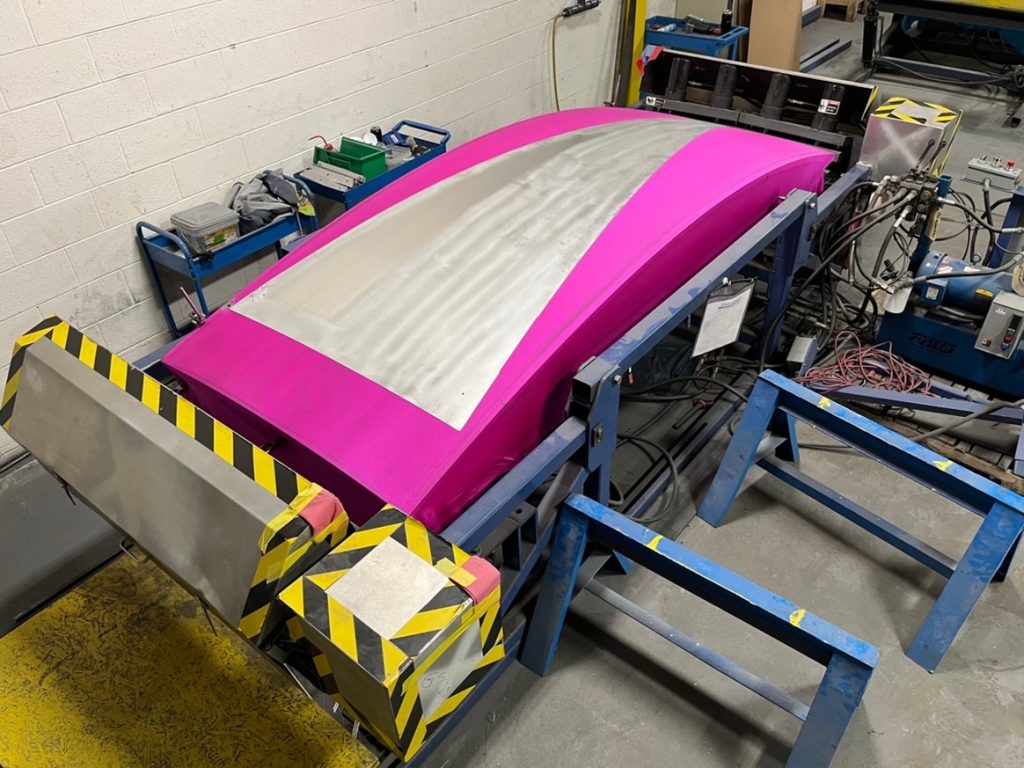
Challenger services and installs both their own products and service antenna systems of other manufacturers. They can retrofit and upgrade existing antennas and mounts, create replacement parts, apply anti-ice systems for new and existing antennas. They also offer customers a full-service machine shop that includes CNC machining, fabrications, prototypes, stamping and die repair, steel and aluminum welding, and wet and powder coat painting.
“If it is made of metal, we can make it,” Operations Manager Dan Grzesik said.
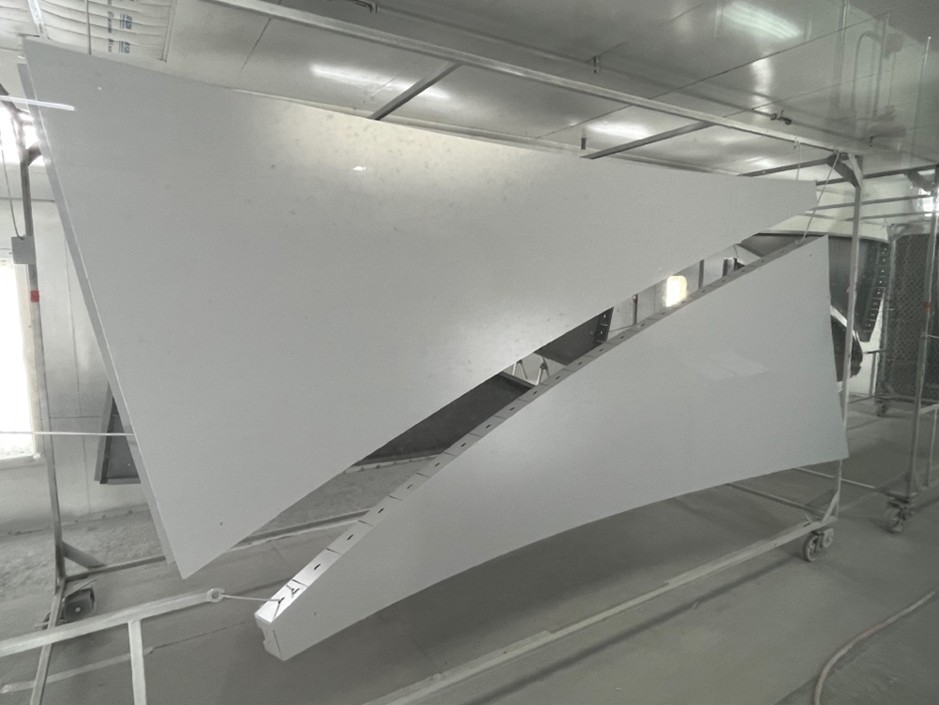
Challenger’s success has come not only from their flexibility and deep experience with satellite systems but also their ability to use high precision tooling to achieve surface smoothness that varies less than eight thousandth of an inch. As customers in the United States look for American produced products, they expect their business to grow. And as a new industrial park takes shape nearby, it is likely that 704 N. Clark, Albion’s venerable industrial site will see continual use and innovation as it enters in third century of service.
